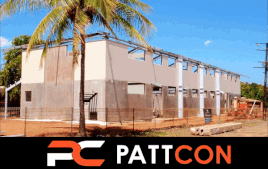Six years after the idea was first floated, the NT now has an on-site cyclotron at the Royal Darwin Hospital to produce radioactive isotopes to power its PET scanner for cancer diagnoses.
The cyclotron is part of the NT Expanding Cancer Services Project – a $23 million joint initiative between the Australian and Northern Territory governments.
The project includes the Radioisotopes for Positron Emission Tomography (PET) scanner and a $5 million expansion of the Alan Walker Cancer Care Centre.
It also includes the commissioning of an additional 12 chemotherapy chairs.
The total cost of the cyclotron and PET scanner is $18 million.
Isotope production for use by the Royal Darwin Hospital PET scanner service is scheduled for June.
“Isotopes for the Royal Darwin Hospital PET scanner are currently sourced from interstate, but local production will ensure availability at all times for faster diagnosis and treatment, leading to improved health outcomes for Territorians,” Health Minister Natasha Fyles said.
PET Physician Doctor Joshua Morigi told Mix104.9 on Monday that producing the scans locally will speed up the process, improving care for patients.
“We will be able to produce more isotopes and provide more scans to our patients, reduce delays and not have delays in our cancer journey to these patients,” Dr Morigi said.
“Having these isotopes produced locally will allow us to no longer cancel scans for patients and no longer be dependent upon interstate production.”
Ms Fyles says that patients living in regional and remote areas often have less access to health services and that it’s important that Territorians have access to the same services as people in capital cities.
The NT Government said PET scan appointments can be made available at shorter notice, as technical disruptions from interstate, for example flight cancellations, will no longer impact clinical schedules, resulting in tangible benefit and convenience for NT patients.
According to the Cancer Council of Australia, the most common cancers in Australia (excluding non-melanoma skin cancer) are prostate, breast, colorectal (bowel), melanoma and lung cancer. These five cancers account for about 60 per cent of all cancers diagnosed in Australia.
In 2021 it was estimated that about 151,000 Australians will be diagnosed with cancer (413 per day) and an estimated 49,000 people will die, an average of 135 deaths per day.






0 Comments